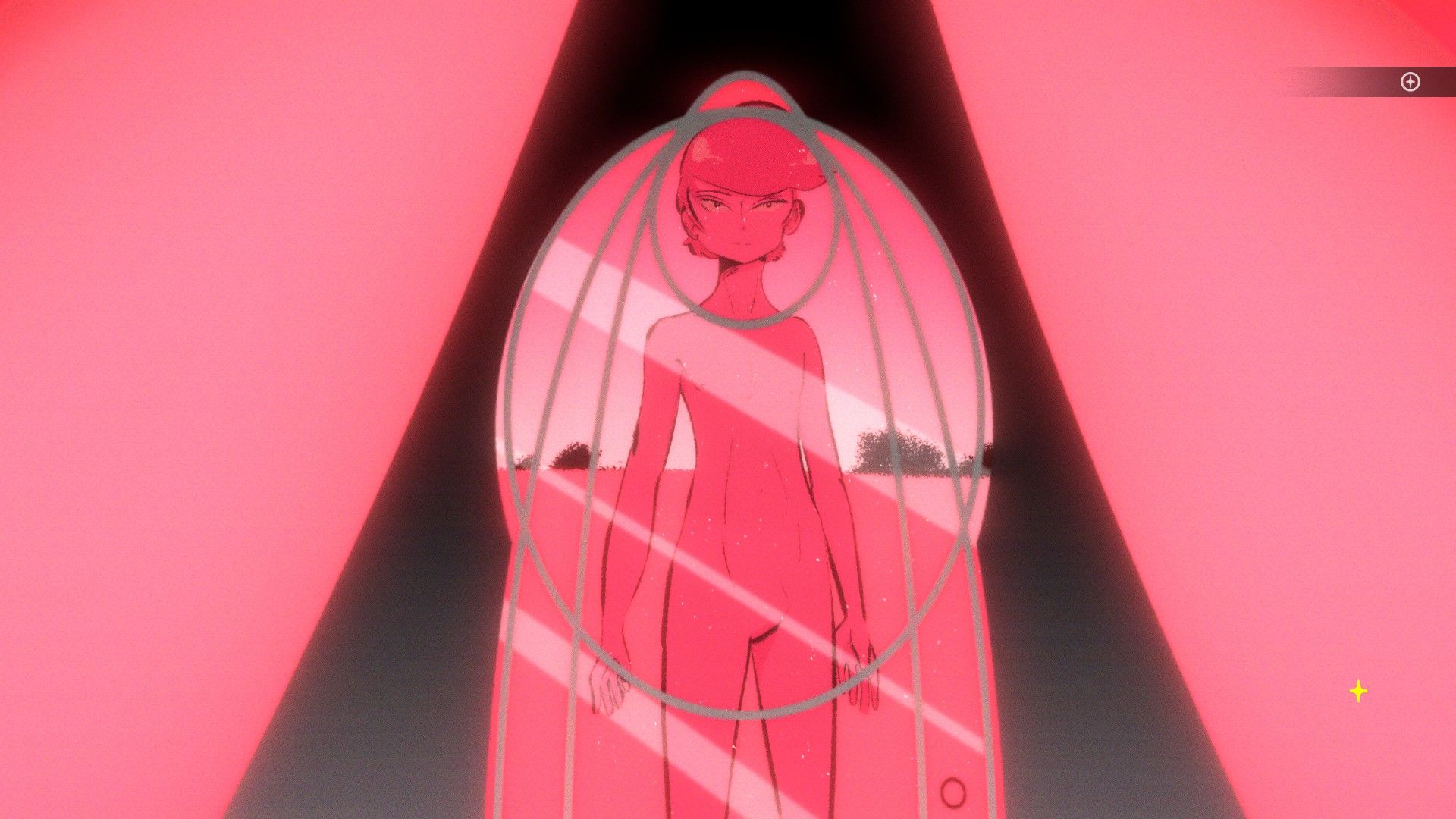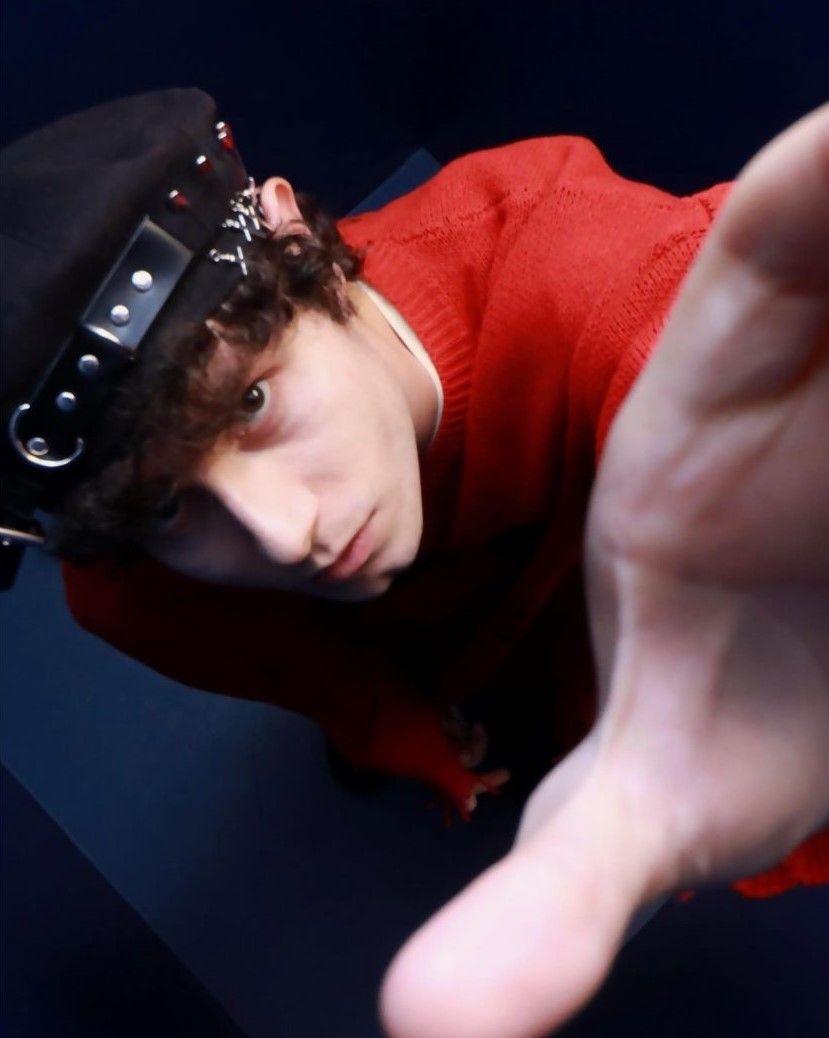The Dark Side of Gay Culture in Mediterranea Inferno: A Profane Iconology
Examining social and existential issues in gay culture in the context of social media and conservatism

Nothing that is around us in the real world can be completely understood by itself, as there can always be an artist who makes us see it in another way. In fact, I would say that this is one of the noblest purposes of art, perhaps even more noble than creating beautiful things.
It may be strange to say this to gamers — because the art of video games is usually a way of going beyond reality in a more intense way than in cinema or literature — but there are moments when this departure from reality within video games mirrors real-world events. This is the case of Mediterranea Inferno (see the image below).
Published by Santa Ragione and developed by Eyeguys (written and directed by Lorenzo Redaelli), Mediterranea Inferno is a horror visual novel whose central theme is gay culture in the post-COVID Italian context. Through the exuberant iconology of this game, today I will show how Lofenzo Redaelli courageously and creatively expresses social problems that directly affect the gay community.


From left to right: Mediterranea Inferno; Lorenzo Redaelli. Source: Author / Santa Ragione / @eye_guys_art (via X).
Mediterranea Inferno is about a sensual summer retreat in the South of Italy in which three men (Claudio, Andrea, and Mida) in their early 20s meet again after two years of isolation during the 2020 pandemic. The objective is a reconnection of the friendship between these three guys, but as the player chooses which activities they will do over the days, they will be able to discover their fears, their obsessions, their failures of expectations, and their thirst for revenge and retribution. These issues arise in the narrative both through the interaction between these characters (one of these characters feels attracted to another, but the three protagonists also see each other as friends) and through the way they see anonymous secondary characters in the plot.
I divide this essay into three parts. In the first topic, I address existential questions regarding homosexual identity. Moving on to the second topic, I explore issues concerning gay beauty and its intersection with the gay community in the age of social media. The third topic focuses on the broader societal issues surrounding gay people. I directly related this last topic to Italian society, but I believe it has many things in common with other Western countries.

Identity, Independence, Homosexuality
People often define a "gay" as a man who is attracted to men. This definition is not wrong, but sometimes people forget that the negative assumption of this definition (not being attracted to women) is as important as the positive fact (being attracted to men). You may have already noticed that anime, films and games in the “Boys Love” category rarely feature female characters (or they are not very important to the plot). This is no coincidence, but a symptom of the gay experience in society.
In our overwhelmingly male-dominated society, gay men often navigate a complex dynamic. Society pressures gay men into these social positions, but at the same time, they are sexually attracted to men, although this type of attraction is traditionally expected of women. This contradiction often places men at the forefront, leading gay men to both admire and distance themselves from certain male ideals.


Mediterranea Inferno. Source: Author / Santa Ragione.
The balance between societal expectations of a successful "man" and the expectations within the gay community for a "gay man" is complex. Although a gay man feels like a man, he may have problems both being what is expected of a successful man and being attractive to other gay men. In this context, it is interesting how Mediterranea Inferno offers different reflections on male homosexual identity through its three protagonists.
In Mediterranea Inferno, the game explores the gay identity, comprising at least four distinct layers of reflection. The first layer focuses on the economic dimension, the second revolves around familial social dynamics, the third encompasses interactions outside the family unit, and the fourth dives into the imaginary.
Economic independence is an important factor for the protagonists, as young adults and as gay men, who want autonomy for their behaviors and preferences. However, they see themselves as part of their families and society. In turn, their identities face pressure in balancing said expectations. Finally, when they try to materialize the expression and desire of their sexuality, they see their bodies as a limitation, but also a place of creation, in Mida’s imagination: “a place of myth and utopia”.




Mediterranea Inferno. Source: Author / Santa Ragione.
Beautiful People, Beautiful Problems
The second group of questions addressed in Mediterranea Inferno concerns beauty. There are many layers of questions about male beauty in this game, and this is no coincidence. In gay culture, there is a frequent concern with male aesthetics both to attract and to be attracted (not necessarily one is the same as the other). Aesthetics affect both self-esteem and acceptance in the gay community, especially in the current era of dating apps.
It is interesting to note that all the important characters in this game are boys with a very similar body type: they are white boys, thin, and of apparently low or medium height (they are generally considered “twinks” in gay culture). Apparently, it seems they possess minimal body hair, with one of them depicted in a scene where he is shaving his legs. At this point in the game, there is a reference to the influence of feminine aesthetics on gay culture.

Probably the most iconic part of the game in which we see fetishes and the cult of a gay male aesthetic is through one of the illusions/mirages on the beach (see images below). In this chapter, we can interact with boys in different ways, always with sexual connotations.



Mediterranea Inferno. Source: Author / Santa Ragione.
Often gay men’s concern about their appearance is not primarily for themselves or their close friends, but for strangers — undefined people who may eventually be known and sexually attracted. It’s worth noting the context’s power to shape the connotation of comments. For instance, labeling a gay individual as a “girl” or even a “slut” may not necessarily carry a negative connotation. Mediterranea Inferno develops the ambiguity of these concepts in a very interesting and dark way.
In any case, comments from the gay community are fundamental for a gay person to build a positive or negative view of their personal identity. Mediterranea Inferno shows this at all times with undefined characters that directly interfere with the reflection of the three protagonists of the plot.


Mediterranea Inferno. Source: Author / Santa Ragione.
Despite the pressure that the gay community puts on the protagonists of Mediterranea Inferno, at the same time they recognize a special bond of friendship (and sometimes more than that). However, one of the most common ways to avoid social and personal problems in this world is to cut off these relationships or simply throw yourself into this network of social connections, such as going to a club with friends.




Mediterranea Inferno. Source: Author / Santa Ragione.
What's intriguing about gay social relations in Mediterranea Inferno is the indirect connections between the protagonists and their social media followers. Followers indirectly influence the behavior and thoughts of the three protagonists. Sometimes it seems like they are living not for themselves, but for people who don’t know them personally. This is especially clear with Mida, who is a celebrity in the online gay community.




Mediterranea Inferno. Source: Author / Santa Ragione.
Art, Tradition, Religion
Finally, we have several reflections related to the context in which the gay community finds itself. Gays do not exist in a parallel society, but share the same social background as everyone else in a society. In Mediterranea Inferno, players are made to consider some contextual factors, especially art, tradition, and religion.
Lorenzo Redaelli explores the Mediterranean tradition in Italy, focusing on visual arts, architecture, and cinema. There are several references to artistic movements, as well as visual metaphors with art, that are used to reflect how gays see themselves and are seen in society.




Mediterranea Inferno. Source: Author / Santa Ragione.
Furthermore, this game is full of references to Judeo-Christian mythology and Catholicism in particular. Many symbols of Christianity are used to reflect on the "sin of pleasure", as well as on the idea of overcoming challenges in the game (the cards to "Ascend to Heavens") and on divine intervention in self-knowledge (through Madama and the Fruit of Mirages).
Combining these religious visual metaphors with other elements adds to their interest, as we mentioned before. A good example is the case in which we see the three protagonists completely tied up (and one of them crucified). In this image, there are several sexual elements and an “applause” sign. This representation merges the aspect of religious condemnation with reflections on judgment and entertainment in gay sexual relations.




Mediterranea Inferno. Source: Author / Santa Ragione.
Mediterranea Inferno addresses a context that resonates with many gays in Western countries, examining themes related to art, tradition, and religion. Lorenzo Redaelli’s intent is to offer insight into the Italian context in particular. To accomplish this, he draws comparisons between Italy’s history and that of other European nations, shedding light on two pillars of Italian culture: Roman history and Christianity.
The author reflects on how Italian conservatism leads to a fratricidal dispute between Italian citizens and relates this to the protagonists of Mediterranea Inferno, who at a certain point seem condemned to kill each other.
Romulus and Remus, twins. Another fratricide that laid the foundations of our beautiful Italy. Unlike other European nations, we have never had a revolution! There's no Italian Revolution in our history books. We've never even had a new cinema nouvelle vague... We never said no to our fathers, to the past they created, to the future they left us. Because we've always preferred killing each other for the sake of that future. [...] and to have from him, in return, permission to kill the other brothers. The failures of the capitalist patriarchal model are finally clearly visible. It's time for me to end my days. But this is the beauty of it: it is an artificial thing, created by them, perpetuated by us—and something YOU can eliminate forever.

